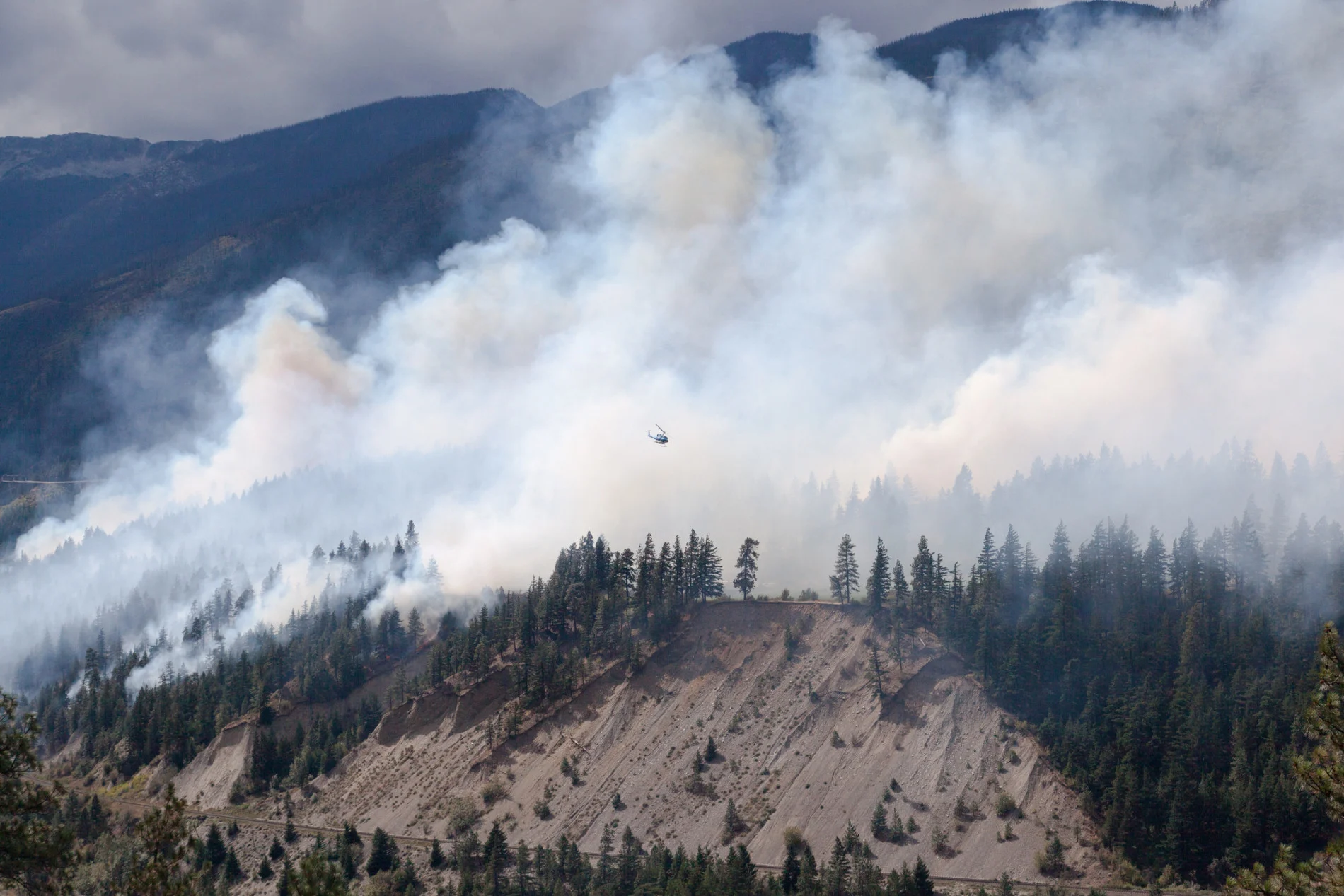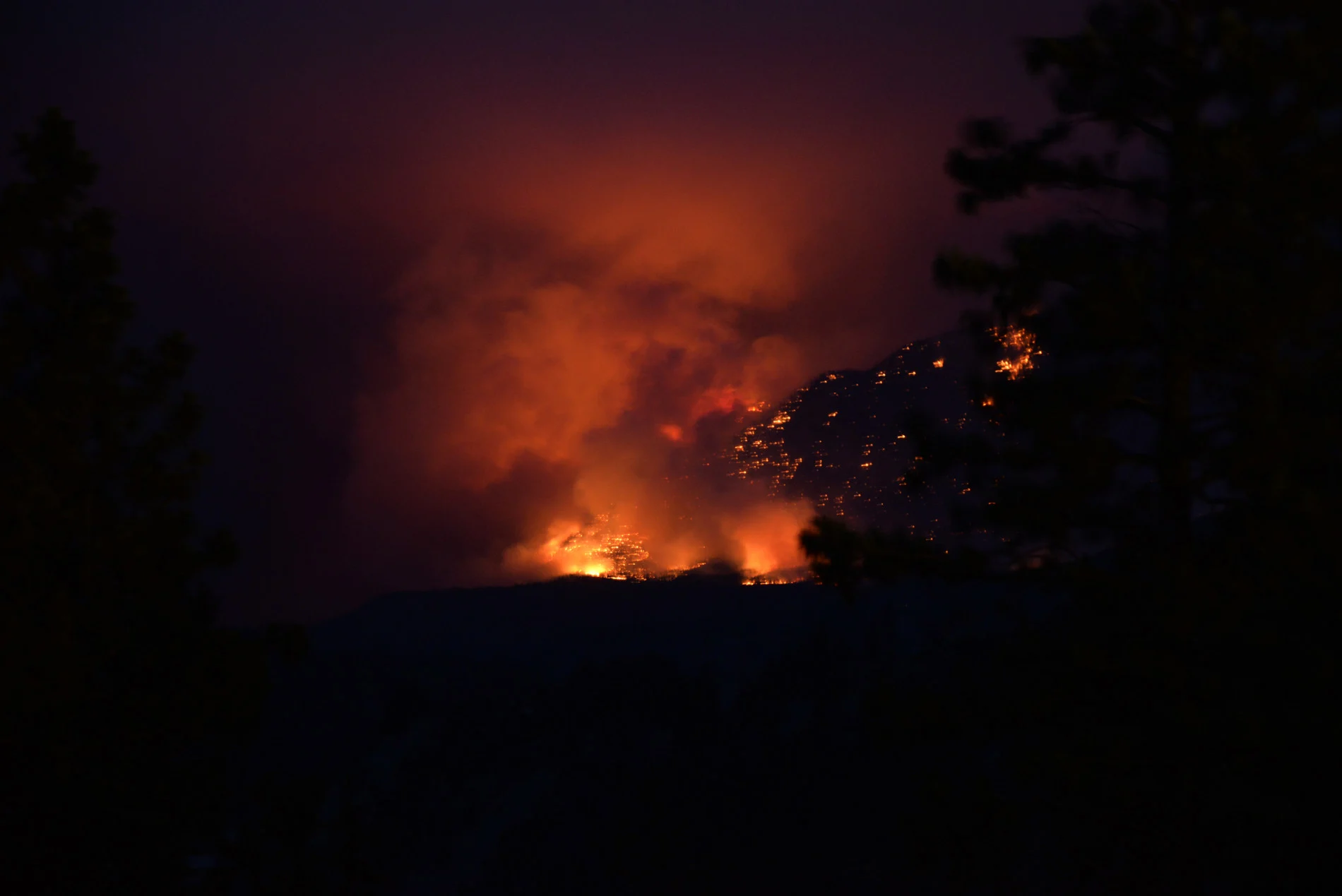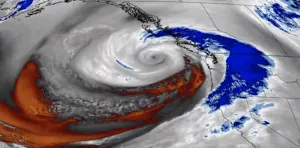
West Coast heat wave virtually impossible without climate change, study says
Scientists warn that heat waves of such severity could occur more frequently if global temperatures rise 2°C above pre-industrial levels.
The world watched in panic as the Pacific Northwest endured the wrath of an unforgiving heat dome that sent temperatures to unimaginable heights. Lytton, a village in British Columbia where many lived without air-conditioning, set a record for the hottest temperature ever recorded in Canada at 49.6°C. Shortly after, the village was decimated by a wildfire.
The aftermath of this severe weather event has many of us searching for answers. A rapid attribution analysis conducted by the World Weather Attribution group, an international team of leading climate scientists, says that this was a clear signal of what's to come in a warming world, and that this heat wave would have been virtually impossible without the influence of human-caused climate change.

Lytton Wildfire in British Columbia. (ProPics Canada Media Ltd. iStock / Getty Images Plus)
Global temperatures are approximately 1.2°C warmer today than they were in the late 1800s. To investigate how climate change influenced the recent heat wave, the scientists analyzed data collected during the event and used peer-reviewed methods to compare it to the past climate.
Temperatures were 16–20°C warmer than normal during the heat wave in late June, which the scientists note is “particularly exceptional,” since the end of July and early August are the climatologically warmer parts of the year for this region.
"What we are seeing is unprecedented. You're not supposed to break records by 4–5°C. This is such an exceptional event that we can't rule out the possibility that we're experiencing heat extremes today that we only expected to come at higher levels of global warming,” said Friederike Otto, a climatologist at Oxford University’s Environmental Change Institute.

Scientists say that the historic West Coast heat wave is a warning of what’s to come in the future with climate change. (Christophe Lehenaff. Moment. Getty Images)
These extreme temperatures fell far outside of the range of historical data sets, which made it difficult for the scientists to precisely calculate just how unusual this event was. Their analysis estimates that a heat wave of this intensity is a rare event that would only occur once every 1,000 years. Additionally, the greenhouse gas emissions that humans have released made this heat wave at least 150 times more likely to happen.
If global temperatures increase by 2°C above pre-industrial temperatures, which could occur as soon as the 2040s, the heat wave would have been one degree hotter and could be an event that occurs every five to ten years.

So, how exactly did this heat wave happen? The researchers say that there are two possible explanations.
Pre-existing drought conditions, a heat dome, and the influence of climate change all came together and resulted in scorching conditions. In this explanation, the data indicate that if the heat wave had occurred in the beginning of the Industrial Revolution, temperatures would have been 2°C cooler.
Alternatively, the researchers hypothesize that the climate system has crossed a non-linear threshold. In this scenario, a small amount of warming causes a steep increase in extreme temperatures that is faster than what we have previously seen.

The heat wave lasted for several days in the Pacific Northwest and claimed hundreds of lives. (Lumppini. iStock / Getty Images Plus)
The preliminary study says that the second explanation needs further investigation, and that current climate models do not indicate this scenario. Their final conclusions assume that the heat wave was a very low probability event that was not caused by nonlineratiries, but acknowledge the need for more investigation into this explanation.
“This event should be a big warning. Currently we do not understand the mechanisms well that led to such exceptionally high temperatures. We may have crossed a threshold in the climate system where a small amount of additional global warming causes a faster rise in extreme temperatures,” said Dim Coumou, a climate scientist from Institute for Environmental Studies (VU Amsterdam) and Royal Netherlands Meteorological Institute (KNMI).
Several hundred deaths in the Pacific Northwest have been linked to extreme heat, a tragedy that the study says can be prevented with proper alerting and safety precautions. Both adaptation and mitigation methods will be needed in the future to protect public health, such as action plans established between local governments and emergency management partners and heat wave early warning systems that can be improved as the climate changes.
Thumbnail credit: scrambler27. RooM. Getty Images












